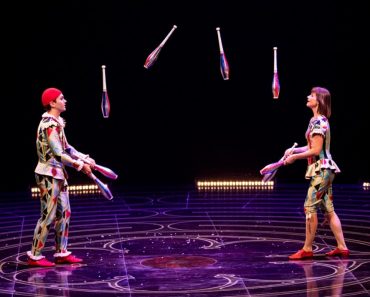Claim – Greece has allegedly installed “wind harps” that produce music and generate clean energy to light up city streets.
Analysis
A message circulating across multiple languages and platforms, accompanied by visually striking images, claims that Greece is leading urban sustainability efforts. The post describes an innovative “wind harp” project — structures supposedly installed along streets that would produce soft music when touched by the breeze while simultaneously generating clean wind energy to illuminate sidewalks.
The story uses poetic language to blend art, technology, and ecology, suggesting that walking through Greek avenues has become a unique sensory experience. The viral message reads as follows:
Greece installs wind harps that generate music and light up the streets. Greece is transforming the way we live in urban spaces by combining art, sustainability, and innovation in one project: the wind harps. These elegant structures resemble futuristic sculptures installed along streets and sidewalks. But they are not just light poles — each one is also a musical instrument powered by nature.
When the breeze blows, the metallic strings vibrate, producing soft sounds that blend naturally with the environment. It’s as if the city itself had its own soundtrack, composed by the wind. At the same time, air movement is harnessed to generate clean energy that powers the built-in lights, illuminating the streets sustainably. The result is a unique experience: walking through these avenues means not only enjoying warm lighting but also being surrounded by spontaneous, delicate music that connects people to nature’s invisible force.
This project symbolizes the pursuit of creative urban solutions that unite beauty, technology, and respect for the environment. Instead of polluting or damaging, these wind harps remind us that it’s possible to harness natural resources intelligently, bringing art, energy, and life to public spaces. A call to imagine more harmonious cities — where the music of the wind lights people’s paths.
Fact-check
The story about “wind harps” in Greece that supposedly generate both music and electricity is completely false. It combines disinformation with AI-generated imagery. To debunk it, we analyzed the following: 1) Did Greece actually install wind harps that create music and energy? 2) Are the images real? 3) Would such a system even be technically feasible?
Did Greece install wind harps that generate music and energy? Are the images real?
No. The story is false. Greece has not implemented any project involving lamp posts functioning as musical wind harps that generate electricity. It’s a fabricated narrative using the themes of sustainability and art to attract clicks. Although Greece invests in renewable energy, including wind power, this occurs through conventional wind farms.
Are the images of the Greek “wind harps” real?
The real wind harp is an ancient musical instrument played by the wind — purely artistic, not capable of generating electricity. The viral images showing futuristic “harps” are AI-generated and not photographs of real installations. The lack of technical information or credible news coverage confirms the visuals are fabricated.
Would such a system be technically feasible?
While poetic, the concept of using string vibrations to generate public lighting power is not viable from an engineering standpoint. The efficiency of conventional wind turbines — which use blades to capture wind — is vastly superior. The energy needed to power streetlights would require far more robust and proven systems than what this rumor suggests, making it economically and technically implausible.
Conclusion
It is false that Greece has installed “wind harps” on its streets to generate music and electricity for lighting. The claim is a creative but fictitious story that mixes sustainability and art. There are no official records of such a project, and the images are AI-generated. Greece does invest in wind energy, but only through traditional technology — not through vibrating musical structures.
Fake news ❌
Ps: This article was suggested by readers of Boatos.org. If you want to suggest a topic to Boatos.org, contact us via e-mail at [email protected] or WhatsApp (https://wa.me/556192755610).







